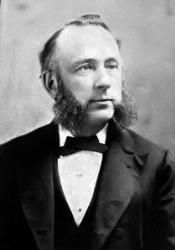1597 - 1639 Person Name: M. Opitz, 1597-1639 Topics: Jesus, Savior of Gentiles Author of "Arise and Shine in Splendor" in Evangelical Lutheran Hymnary Opitz, Martin, son of Sebastian Opitz, butcher at Bunzlau in Silesia, was born at Bunzlau, Dec. 23, 1597. He entered the University of Frankfurt a. Oder in 1618, and in 1619 went to Heidelberg, where he acted as a private tutor, and studied literature and philosophy at the University, paying also short visits to Strassburg and Tübingen. When the University was threatened by the Spanish troops (they sacked the town under Tilly in Sept. 1622), Opitz left Heidelberg in Oct. 1620, and with his friend, H. A. Hamilton (a member of a Danish noble family, travelled through Holland, Friesland and Jutland. In the spring of 1621 he returned to Silesia through Lübeck, and at Easter, 1622, became Professor of Philosophy and Poetry in the Gymnasium, founded at Weissenburg in Transylvania by Prince Bethlem Gabor (Gabriel Bethlen). He resigned this post in the summer of 1623, and then for some time employed himself at the request of Duke Eudolf of Liegnitz-Brieg in versifying the Epistles for Sundays and Festivals according to the metres of the French Psalter (see below), being rewarded with the title of Bath, but receiving no permanent appointment. In 1625 he accompanied his cousin, Kaspar Kirchner, on an embassy to Vienna, where he presented to the Emperor Ferdinand II. a poem on the death of the Grandduke Karl (Prince-Bishop of Breslau, and brother of the Emperor), and was crowned as a poet by the Emperor (who in 1628 also raised him to the nobility as Opitz von Boberfeld). He then became, in 1626, private secretary to the Burgrave Carl Hannibal von Dohna, president of the Supreme Court in Silesia. When, in 1628, von Dohna began the Counter-Reformation, by means of the Lichtenstein dragoons, against the Protestants of Silesia, Opitz wrote poems in his praise, and in 1631 published a translation of the controversial manual of the Jesuit Martin Becanus, "for the Conversion of the Erring" to help on this work. He also executed a diplomatic mission to Paris in 1630, on Dohna's behalf, where he became acquainted with Hugo Grotius. When Dohna was driven out of Breslau in Sept. 1632, by means of the Saxon and Swedish troops, Opitz remained behind.
In the autumn of 1633 he was sent by Duke Johann Christian of Liegnitz-Brieg as his plenipotentiary to Berlin, and also to the Swedish chancellor Oxenstjerna. When Wallenstein obtained the mastery over the Silesian duchies, Opitz accompanied Duke Johann Christian to Thorn in 1635. He then went to Danzig, where in June, 1637, he was definitely installed as Historiographer to King Wladislaw IV. of Poland. Here, from this place of rest, he did his best, by correspondence and otherwise, to atone for the oppression of his brethren in Silesia. During the pestilence which visited Danzig in 1639 he was accosted on Aug. 17 by a diseased beggar to whom he gave an alms, and whose frightful appearance so affected him that he returned home, sickened of the pestilence, and died Aug. 20, 1639. (Allgemeine Deutsche Biographie xxiv. 370: Goedeke's Grundriss, iii., 1887, p. 37, &c.)
Opitz was pre-eminently a literary man of the world who knew how to ingratiate himself with people of all opinions. He was one of those writers who exercise an enormous influence over their contemporaries, but whose works succeeding generations are content to leave unread. A long list of his works is given by Goedeke, some ninety (including a considerable number of trs. from the Greek, Latin, French, and Dutch), of which appeared during his lifetime. In his poems originality and force are conspicuous by their absence, and the great majority have little but their style to recommend them. He became a member of the great German literary union, the Fruitbearing Society, in 1629. His great merit was as a reformer of German prosody by his example of literary style, and by his Buch der Deutschen Poeterey, an epoch-making work, published at Breslau in 1624. Here he laid down the rules of German verse, and may be said to have given it the form which it retains to this day….
A few of Opitz's hymns are found in recent German hymn-books while two have passed into English, viz.:—
i. Brich auf, und werde Lichte. Epiphany. In his Episteln, 1628, p. 11, in 6 stanzas of 6 lines, and entitled, "On the Holy Three Kings Day. Isaiah 60." Translated as:—
Zion, awake and brighten. In full by E. Cronenwett, as No. 51 in the Ohio Lutheran Hymnal, 1880.
ii. 0 Licht, geboren aus dem Lichte. Morning. His finest hymn, and a special favourite in Silesia. First published at the end of his Zehen Psahnen Davids, Breslau and Leipzig, 1634, p. 48, in 3 st. of 10 1., and entitled "Morning Hymn." Translated as:—
Thou Light, from Light eternal springing. A good and full translation by H. J. Buckoll, in his Hymns from the German, 1842, p. 17; repeated, slightly altered, in the Dalston Hospital Hymn Book, 1848.
Other trs. are: (1) “0 Holy Light, of Light engendered." By C. W. Shields, in Sacred Lyrics from the German, Philadelphia, U. S. A., 1859, p. 164. (2) "0 Sun of Righteousness, thou Light." By Dr. G. Walker, 1860, p. 58. (3) "0 Light, who out of Light wast born." By Miss Winkworth, 1869, p. 173. [Rev. James Mearns, M.A.]
--Excerpts from John Julian, Dictionary of Hymnology (1907)
Martin Opitz


 My Starred Hymns
My Starred Hymns




